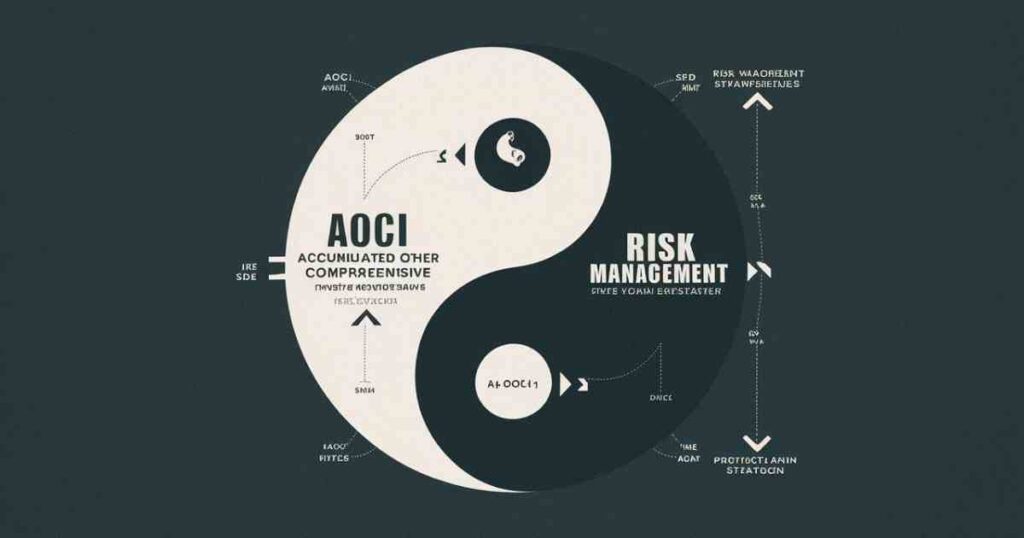AOCI, or Accumulated Other Comprehensive Income, is a financial metric that shows unrealized gains or losses not included in net income. Understanding how AOCI impacts a business’s finances is crucial.
Overlooking AOCI means missing valuable insights into a company’s financial health and performance. AOCI can reveal hidden vulnerabilities and risks, providing a more comprehensive view of the business.
Exploring AOCI can help business owners and finance professionals enhance financial reporting, strengthen risk management, and drive long-term growth. This knowledge is key to making informed decisions.
Why AOCI Matters: The Hidden Influence on Your Business’s Financial Performance
AOCI, or Accumulated Other Comprehensive Income, is a crucial financial metric that can have a significant impact on your business’s overall financial health. While it may not be as well-known as traditional performance indicators like revenue or profit, AOCI can play a pivotal role in how your company is perceived by investors, lenders, and other key stakeholders.
AOCI represents unrealized gains or losses that are not reflected in your company’s net income. These can include items like foreign currency translation adjustments, pension plan actuarial gains/losses, and changes in the fair value of available-for-sale securities. Although these items may not directly impact your bottom line, they can have a substantial effect on your overall profitability and financial stability.
AOCI and Its Direct Effect on Your Company’s Profitability
AOCI can directly influence your company’s profitability by affecting key financial metrics and ratios. Fluctuations in AOCI can impact your debt-to-equity ratio, assets, and other critical measures that lenders and investors use to evaluate your financial health.
For example, if your business experiences significant unrealized losses in its investment portfolio, these losses would be reflected in AOCI, which could in turn lower your overall net worth and weaken your financial position. Conversely, unrealized gains in AOCI can boost your company’s perceived financial strength and stability.
BEST INFORMATION FOR YOU: Unit Elastic: The Role in Economics and Business Strategy
The Financial Implications of AOCI: What Business Owners Should Know
As a business owner, it’s crucial to understand the financial implications of AOCI and how it can affect your company’s financial reporting and decision-making. AOCI can impact your balance sheet, the calculation of key financial ratios, the perceived stability and sustainability of your earnings, and investor and lender perceptions of your business’s financial strength.
By staying on top of AOCI-related changes and proactively addressing any issues, you can ensure that your financial statements accurately reflect your company’s true financial position and performance. This, in turn, can help build trust with investors, lenders, and other stakeholders.
How AOCI Impacts Business Valuation and Investor Relations
AOCI can also play a significant role in how your business is valued by potential buyers, investors, and other stakeholders. Unrealized gains or losses reflected in AOCI can affect your company’s net worth, which is a key factor in determining its overall valuation.
Additionally, AOCI transparency and management can be important considerations for investors evaluating your company. Effectively communicating and addressing AOCI-related issues can help build trust and strengthen investor relations, ultimately enhancing your company’s access to capital and improving its long-term financial prospects.
The Relationship Between AOCI and Risk Management in Business

AOCI can also be closely tied to your company’s overall risk management strategy. Certain AOCI items, such as foreign currency translation adjustments or pension plan actuarial losses, can expose your business to heightened financial risks.
Understanding and proactively managing these AOCI-related risks can be crucial for maintaining the financial stability and resilience of your organization. By implementing robust risk mitigation strategies, you can protect your business from potential AOCI-driven volatility and ensure its long-term financial health.
AOCI and Comprehensive Income: Understanding the Financial Connection
AOCI is a key component of your company’s comprehensive income, which represents the total change in equity from non-owner sources during a given period. By understanding the relationship between AOCI and comprehensive income, you can gain valuable insights into your business’s overall financial performance and position.
Analyzing the components of comprehensive income, including AOCI, can help you identify trends, spot potential issues, and make more informed decisions about your company’s financial strategy and goals.
How Businesses Can Leverage AOCI to Improve Financial Reporting
While AOCI may seem like a complex or obscure financial metric, there are ways that businesses can leverage it to enhance their financial reporting and transparency. This can include clearly communicating AOCI-related items and their impact on your financial statements, using AOCI data to identify and address potential financial risks or opportunities, and aligning AOCI management with your overall financial strategy and goals.
By proactively managing and reporting on AOCI, you can demonstrate your commitment to financial transparency and accountability, which can positively influence investor and stakeholder perceptions of your business.
Mitigating the Financial Risks Associated with AOCI: A Practical Guide
To effectively manage the financial risks associated with AOCI, businesses should consider implementing a comprehensive risk mitigation strategy. This may include regularly monitoring and analyzing AOCI fluctuations, implementing hedging strategies to manage exposure to specific AOCI-related risks, and developing robust financial reporting and disclosure processes around AOCI.
By taking a proactive approach to AOCI risk management, you can protect your business from potential volatility and ensure its long-term financial stability and resilience.
Conclusion
AOCI is a critical financial metric that can have far-reaching implications for your business’s financial health, performance, and valuation. By understanding the direct and indirect effects of AOCI, you can make more informed decisions, enhance your financial reporting, and ultimately improve the overall financial stability and resilience of your organization. By leveraging AOCI to your advantage, you can unlock new opportunities for growth and success, and ensure that your business remains financially strong and competitive in the years to come.

Howdy, editor at FinanceEon.com, brings over a decade of financial journalism experience. He ensures accuracy and insightful analysis, guiding a team on market trends and investment strategies.







